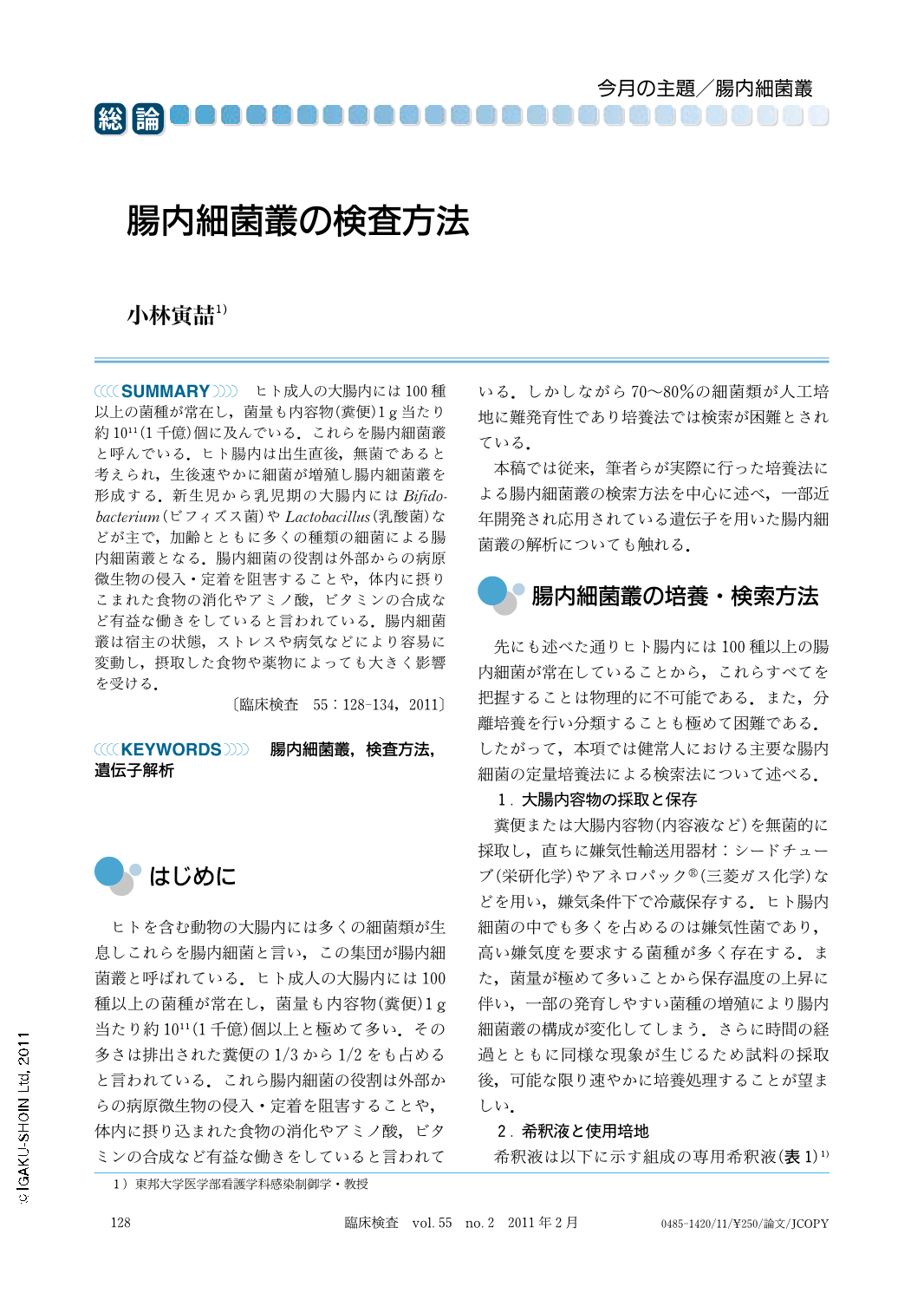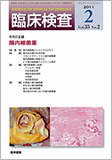Japanese
English
- 有料閲覧
- Abstract 文献概要
- 1ページ目 Look Inside
- 参考文献 Reference
ヒト成人の大腸内には100種以上の菌種が常在し,菌量も内容物(糞便)1g当たり約1011(1千億)個に及んでいる.これらを腸内細菌叢と呼んでいる.ヒト腸内は出生直後,無菌であると考えられ,生後速やかに細菌が増殖し腸内細菌叢を形成する.新生児から乳児期の大腸内にはBifidobacterium(ビフィズス菌)やLactobacillus(乳酸菌)などが主で,加齢とともに多くの種類の細菌による腸内細菌叢となる.腸内細菌の役割は外部からの病原微生物の侵入・定着を阻害することや,体内に摂りこまれた食物の消化やアミノ酸,ビタミンの合成など有益な働きをしていると言われている.腸内細菌叢は宿主の状態,ストレスや病気などにより容易に変動し,摂取した食物や薬物によっても大きく影響を受ける.
There are more than 100 bacterial species residing in the adult human colon with approximately 1011 bacteria per gram of feces. The presence of these microorganisms reflects the intestinal flora. It is thought that there is no microorganism in the gastrointestinal tract of a normal fetus. The intestinal flora is established after birth. During the period from birth through the breast-fed stage, Bifidobacterium and Lactobacillus are the dominant bacteria. After weaning, a diverse number of bacteria are introduced to form the intestinal flora seen in adults. Normal intestinal flora are thought to play a number of useful functions:they interfere with the adherence of pathogenic bacteria acquired from outside the body to intestinal cells as well as repressing their growth;digestion of food;and synthesis of amino acids and vitamins. Depending on the condition of their host including stress and disease, the intestinal flora is easily subject to change. Ingested food or antimicrobial agents have a major impact on the intestinal flora.

Copyright © 2011, Igaku-Shoin Ltd. All rights reserved.


